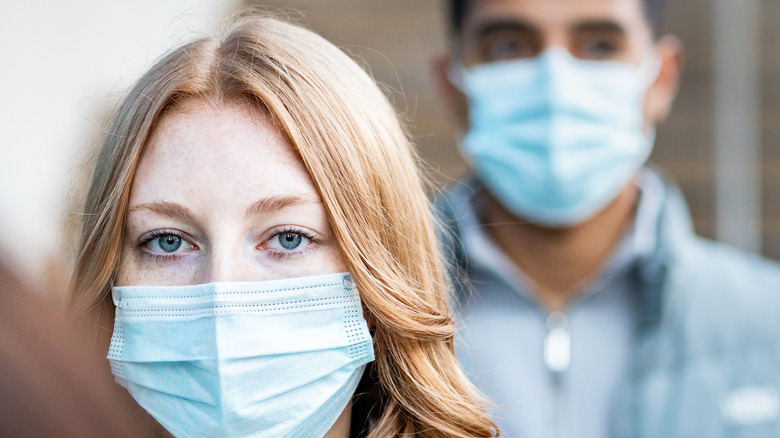Reinfection Protection After COVID-19 Is Longer Than You Might Think, According To A New Study
Although COVID cases have been on the decline since the beginning of this year, the Centers for Disease Control and Prevention (CDC) says the United States is still seeing more than one-quarter million new cases a week. Even so, just 16% of the U.S. population has received the updated booster. A new systematic review from The Lancet says you might want to schedule your COVID booster based on when you were last infected with COVID-19. That's because your previous infection provides you with some natural immunity for a certain time. The study looked to see how long that protection can last.
The study compiled COVID data from 65 studies from 19 countries, looking at people's level of immunity after infection compared to people who weren't infected. If people were infected with the "ancestral" COVID-19 or the Alpha, Beta, or Delta variants, their natural immunity offered 78.6% protection from these variants up to 10 months after the initial infection. However, their immunity to the Omicron BA.1 variant dropped to 36% after 40 weeks. In other words, they had less immunity to Omicron than the previous variants. However, all variants of COVID offered 88% or higher protection from severe COVID-related disease for at least 40 weeks.
Natural immunity determines when to get COVID booster
The study acknowledged that pre-Omicron infections provided less protection from Omicron variants. Even if people got infected with Omicron, they were less protected against the BA.4 and BA.5 subvariants of Omicron. Overall, the study suggested that natural immunity can provide almost as much — if not more — protection from COVID as an mRNA vaccine for up to 10 months. Therefore, the study suggested scheduling a booster as this immunity begins to decline.
Health experts told CNN that this study holds a lot of promise for natural immunity, but natural immunity or immunity from vaccination still wanes after several months. Unlike measles and chickenpox vaccines, people will more than likely need annual COVID booster shots to support their immunity. They also said that you shouldn't purposely get COVID so you'll get natural immunity. Vaccines still protect you from severe illness, especially if you have another health condition. A severe illness puts you at a higher risk for long COVID.
The study addressed the need to study the behaviors of emerging variants to see how people's immune systems can protect against them. The study compiled data before the Omicron XBB variant emerged, which accounts for 80% of new COVID cases in the United States, according to the CDC.


